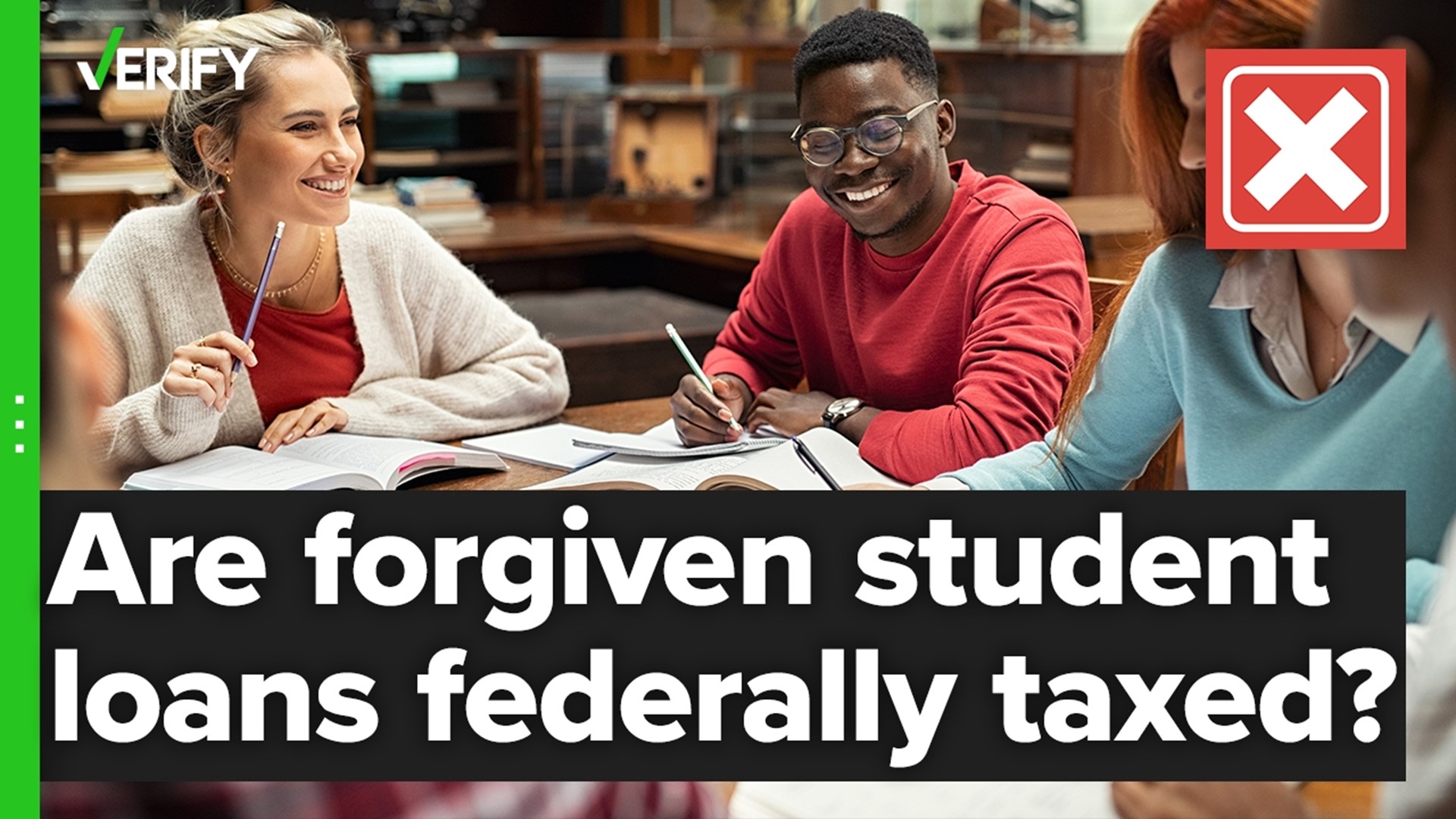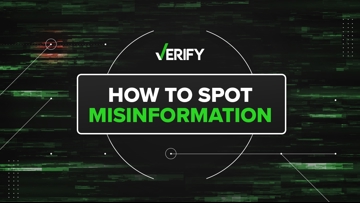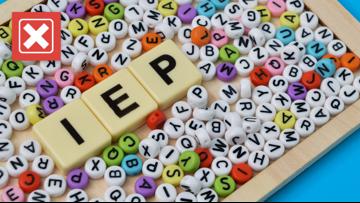UPDATE (6/30/23): The Supreme Court has struck down the Biden administration's one-time student loan forgiveness plan. Loan repayments are expected to resume later this summer. You can read more information here.
Student loan borrowers who make less than $125,000 per year will have between $10,000 and $20,000 of federal student loan debt forgiven, President Joe Biden announced on Aug. 24.
Since the announcement, VERIFY has received many questions from readers about what exactly that means for the American student loan borrower.
Several of those questions have been about federal and state taxes, such as one from viewer Loralea, who asked if their state would tax loan forgiveness.
THE QUESTION
Will people who receive student loan forgiveness have to pay federal or state taxes?
THE SOURCES
THE ANSWER
People will not pay federal taxes on student loan forgiveness, but states could decide to tax money forgiven by the federal government as income.
WHAT WE FOUND
Federal taxes
The American Rescue Plan Act (ARPA) of 2021 was passed in March 2021 as part of a COVID-19 relief package that stipulated any debt forgiven from Dec. 21, 2020 to Jan. 1, 2026 will not count as income.
This means eligible borrowers don’t have to pay federal taxes on any student loan forgiveness through Dec. 31, 2025, Andrew Lautz, National Taxpayers Union Foundation's director of federal policy, told VERIFY.
What happens after that is unknown at this time because we don't know what decisions Congress and future presidents will make years from now, Lautz said.
State taxes
Whether states will tax loan forgiveness depends on what state lawmakers decide, Lautz told VERIFY.
“I do anticipate that a lot of states will follow the federal government's lead in ensuring that debt cancellation is not taxable, but it will depend from state to state,” Lautz said.
States that tax income could theoretically charge borrowers state income taxes on forgiveness, but some already agreed to exclude student loan forgiveness from taxation.
These are the states that have confirmed to VERIFY they will exclude student loan forgiveness from taxation:
- Alabama
- Arizona
- Colorado
- Hawaii
- Idaho
- Massachusetts
- New Mexico
- North Dakota
- Oregon
These states don’t have income tax at all:
- Alaska
- Florida
- Nevada
- South Dakota
- Texas
- Washington
- Wyoming
These states have said they will tax student loan forgiveness:
- Indiana
- Minnesota
Indiana and Minnesota are the only states so far that have confirmed to VERIFY they will be charging state income tax on student debt canceled unless there are changes to the tax laws.
According to Shane Delaney, communications director for the Minnesota Department of Revenue, legislation that would have aligned Minnesota’s tax laws with federal laws didn’t pass before the state’s legislative session ended in May.
“If the state legislature does not pass a law to conform to this federal law, then Minnesota taxpayers who have their student debt discharged will have to add back this amount for Minnesota income tax purposes,” Delaney told VERIFY.
Natalie Rodriguez, a spokesperson for the Indiana Department of Revenue told VERIFY residents in the state will have to pay state and county income tax on student loan forgiveness.
Rodriguez said Indiana’s income tax rate is 3.23% and the county rate varies by county. A chart is available here.
To check for updates on if your state will tax student loan forgiveness amounts, check for updates with your local Department of Revenues.
Editor’s note: This article will be updated as states announce new tax policies related to student loan forgiveness.












